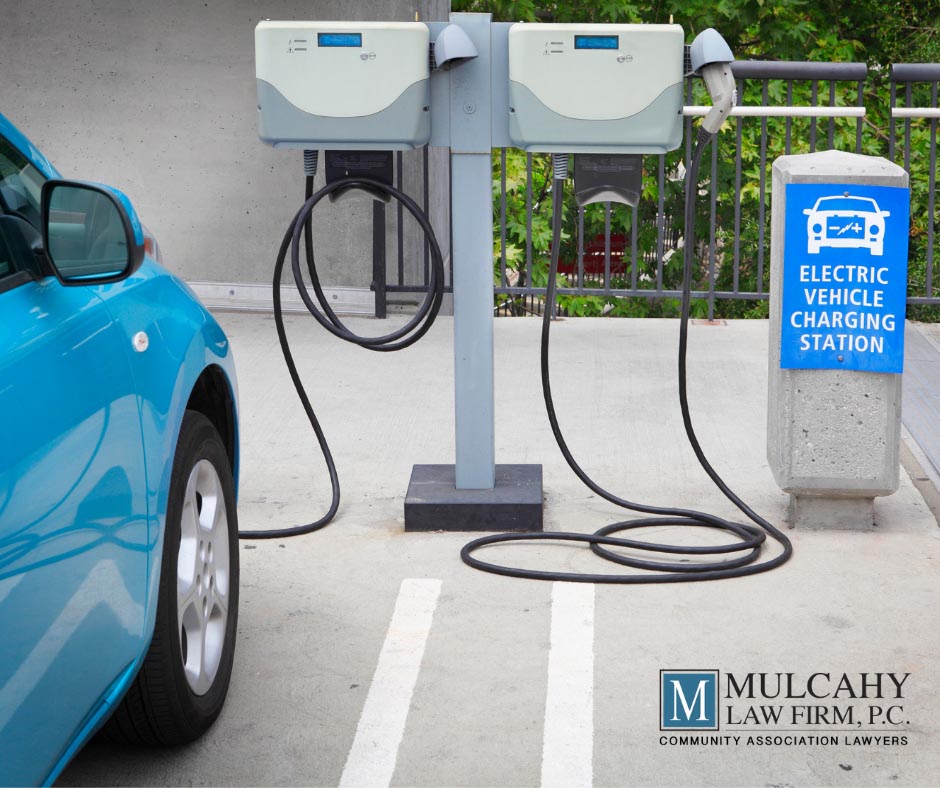Sales of electric and plug-in hybrid vehicles hit the two million mark in the United States in 2019, and continue to grow at a rapid pace. According to EV Sales Blog, registrations of plug-in electric cars rose 136% year-over-year for the period ending in February 2021. And with more auto manufacturers adding electric vehicles to their lineups, sales are expected to continue to rise. If your association has not encountered an owner wishing to install a charging station for their electric vehicle yet, chances are you will face this issue soon.
A handful of states have already passed laws regarding the installation and use of charging stations for electric vehicles, including California, Colorado, Oregon and Hawaii. These statutes generally require compliance with zoning and building codes, and allow community associations to impose reasonable restrictions on the installation and use of charging stations as long as the restriction “does not significantly increase the cost…or performance” of charging an electric vehicle.
While the Arizona legislature has not yet enacted laws regarding electric vehicles and charging stations, community associations will need to determine if their governing documents give the Board discretion to install a charging system. Boards will also want to consider issues such as who will pay the costs to install, maintain and insure the charging system, and who will pay the electricity costs. New parking spots may need to be created, or existing spots may need to be converted to “electric vehicle-only” spaces. In short, Boards must stay informed about the law, and may need to amend their governing documents or create rules to stay ahead of this issue.
Please contact Beth Mulcahy, Esq. at bmulcahy@mulcahylawfirm.com if you have questions or need advice on this matter or any other legal matter pertaining to HOAs and/or condominiums. Mulcahy Law Firm, P.C. has tips to help your association create a greener community.

